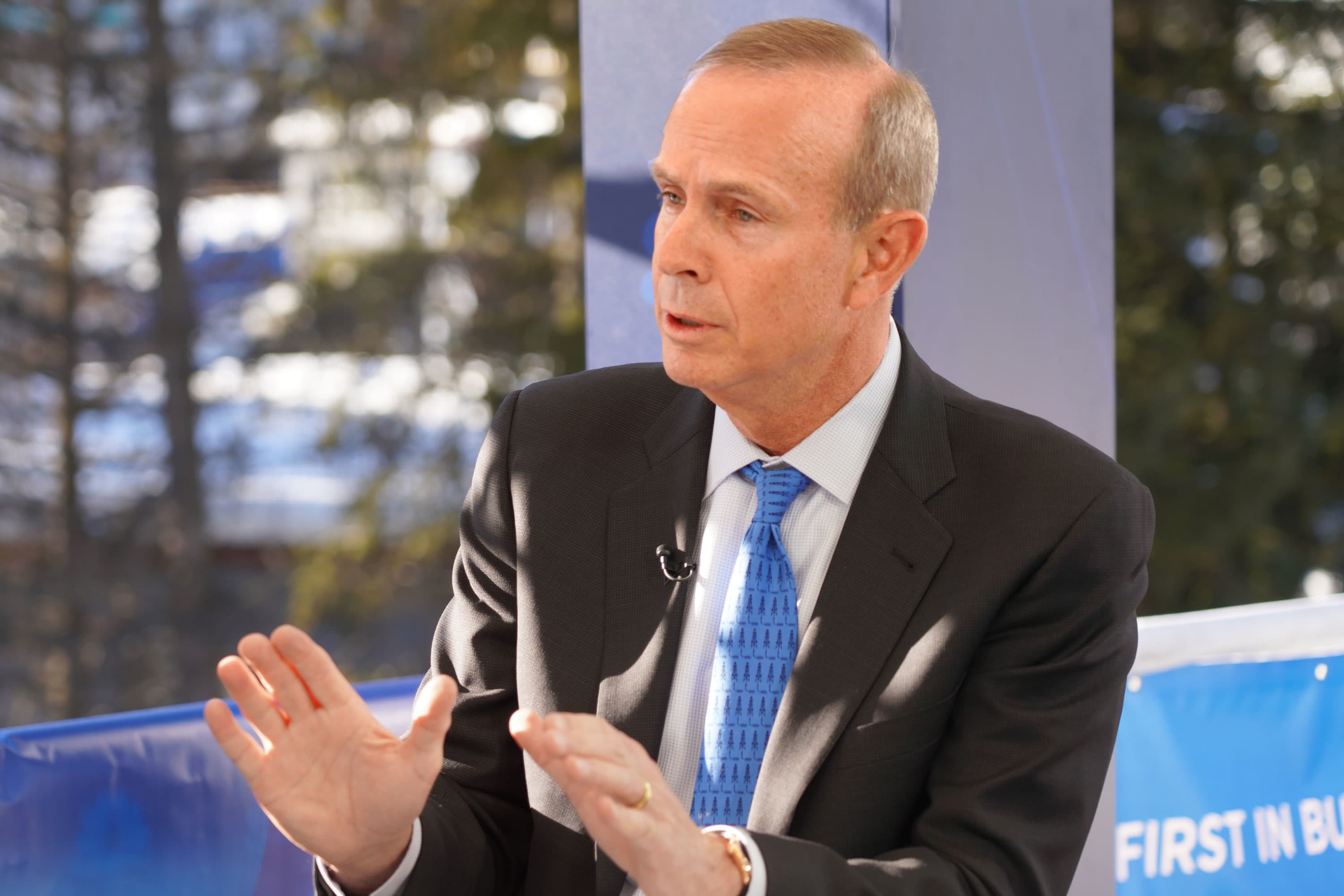Michael Wirth, CEO, Chevron, speaking at the World Economic Forum in Davos, Switzerland, Jan. 23, 2020.
Adam Galica | CNBC
Chevron CEO Michael Wirth told CNBC he hasn’t spoken to Berkshire Hathaway since the firm took a stake in the oil giant, but he said the decision suggests confidence in Chevron’s long-term future.
“I can’t infer anything other than their investment decision would suggest that there’s some confidence in the long-term future of our company and our ability to generate value for shareholders over the long term,” Wirth said on CNBC’s “Closing Bell.”
“I look forward to meeting with them in the weeks and months to come,” he added.
Berkshire began building a position in Chevron during the fourth quarter of 2020, and by the end of last year had amassed more than 48 million shares of the oil giant, according to filings with the Securities and Exchange Commission.
Berkshire’s annual letter to shareholders stated that as of the fourth quarter the Chevron position was worth north of $4 billion, making it one of the firm’s top ten holdings.
“I believe Chevron is a great long-term value investment for any investor, and so we certainly do welcome Berkshire Hathaway’s investment in our company. They’re well known as a long-term investor and a value-oriented investor and one that we’re very pleased to have in our stock,” Wirth said.
His comments followed Chevron’s annual investor day, during which the company pledged higher returns and lower carbon emissions into the future. Shares of the company hit their highest level in a year on Tuesday, before ultimately closing the session down 0.23%.
For the year the stock is up nearly 30% amid a rotation into the beaten-down energy sector, although the stock is about 19% below its all-time high from 2014.
Following a brutal year for the energy sector broadly as oil prices tumbled to never-before-seen lows, Chevron implemented aggressive cost-cutting measures and significantly lowered its capital spending plan. During its investor day, the company laid out an optimistic vision for more than doubling the return on capital employed by 2025, and growing free cash flow more than 10% annually by that year.
“We see markets that are healing. Demand is coming back as the pandemic is gradually becoming better controlled and supply has been somewhat constrained by OPEC and OPEC+, so excess inventories are coming down and prices reflect this gradual move back towards a more equilibrium state in markets,” Wirth told CNBC.
